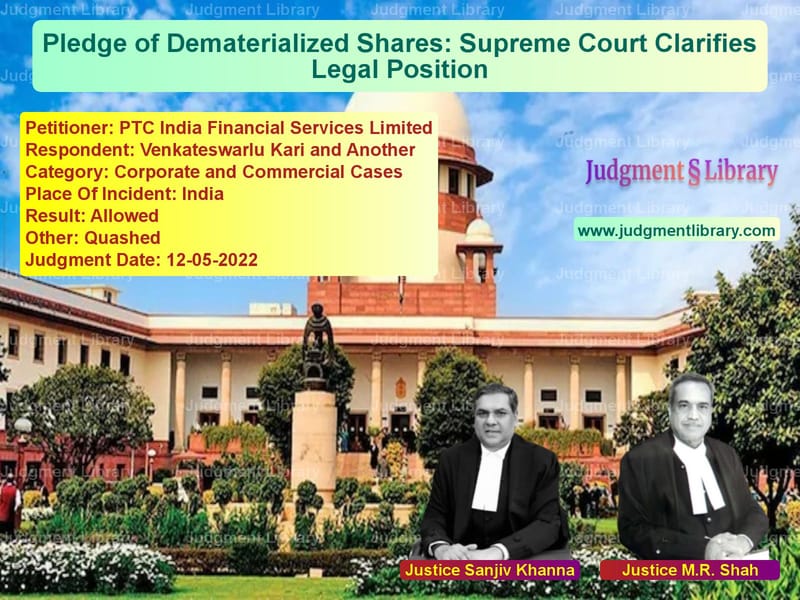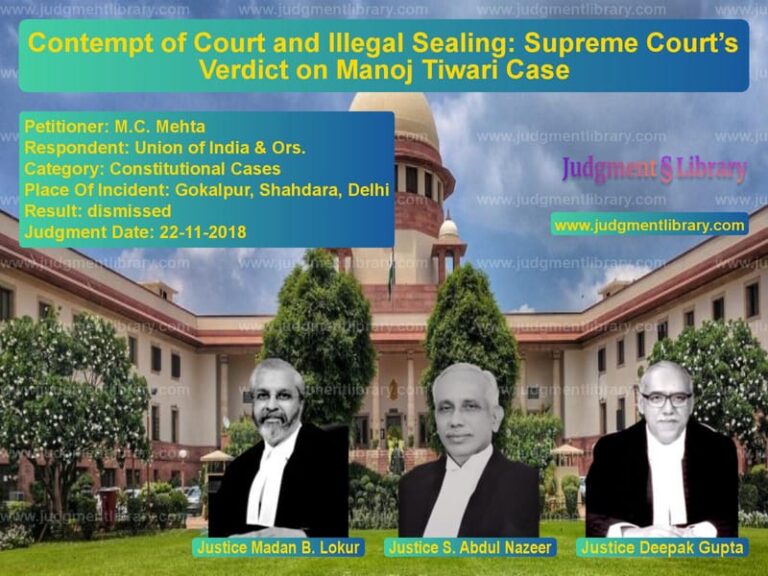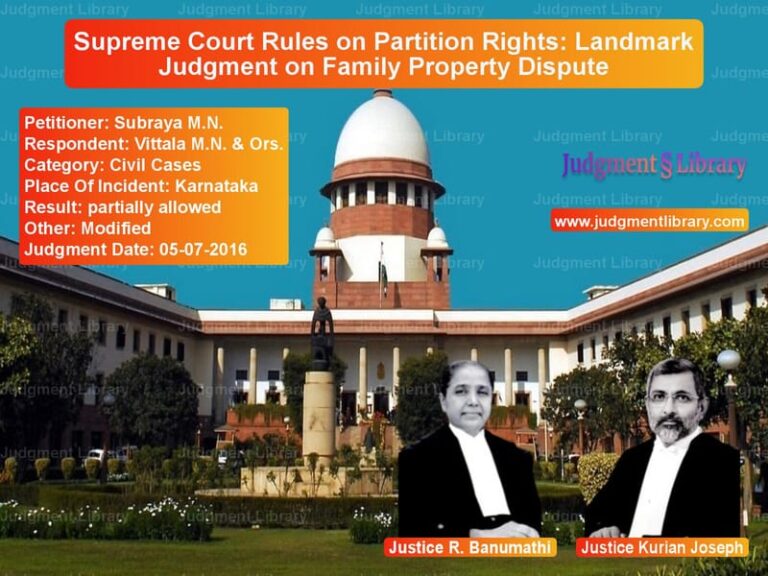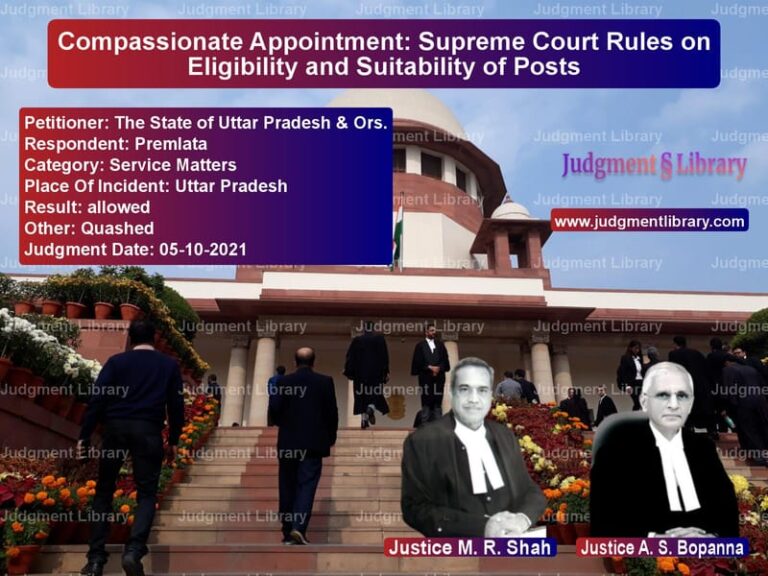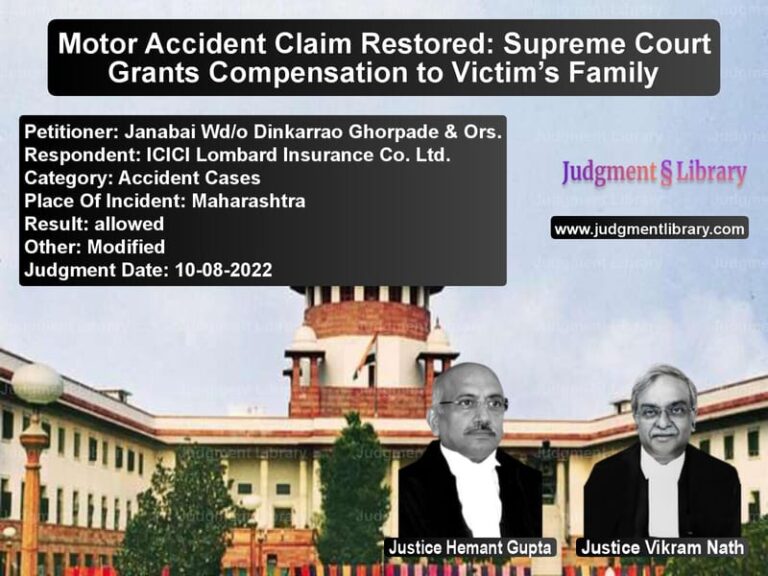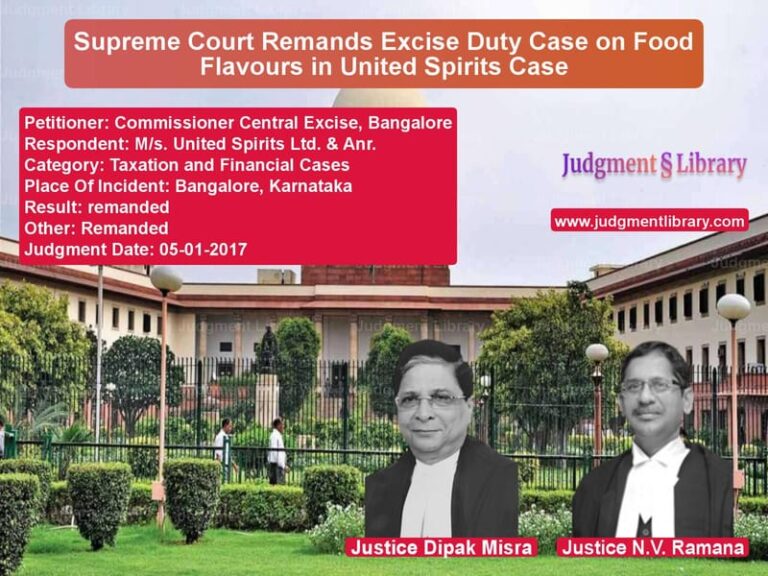Pledge of Dematerialized Shares: Supreme Court Clarifies Legal Position
The Supreme Court of India recently delivered a landmark judgment in the case of PTC India Financial Services Limited vs. Venkateswarlu Kari & Anr.. The case revolved around a dispute concerning the pledge of dematerialized shares and the legal implications under the Depositories Act, 1996, and the Indian Contract Act, 1872. The Court addressed whether the Depositories Act overrides the traditional law of pledge under the Contract Act and clarified the rights of pledgees and pledgors in dematerialized securities.
Background of the Case
The dispute arose when PTC India Financial Services Limited (PIFSL), a non-banking financial company (NBFC), advanced a loan of ₹125 crores to NSL Nagapatnam Power and Infratech Limited (NNPIL). As security for the loan, Mandava Holdings Private Limited (MHPL) pledged 31,80,678 shares of NSL Energy Ventures Private Limited (NEVPL) to PIFSL.
When NNPIL defaulted on repayment, PIFSL exercised its rights under the pledge agreement, transferring the pledged shares to its name as the beneficial owner. However, a dispute arose when MHPL claimed that this transfer extinguished PIFSL’s right to recover its debt. The matter was taken to the National Company Law Tribunal (NCLT) and later to the National Company Law Appellate Tribunal (NCLAT), which ruled in favor of MHPL. PIFSL then appealed to the Supreme Court.
Key Legal Issues Before the Supreme Court
- Whether the Depositories Act and SEBI regulations override the Indian Contract Act in cases of share pledges.
- Whether a pledgee’s right to sell pledged shares is extinguished once they become the beneficial owner.
- Whether the pledgee must account for the value of the pledged shares as debt repayment upon assuming beneficial ownership.
Arguments Presented
Petitioner’s (PTC India Financial Services Limited) Arguments
- PIFSL argued that its right to recover the loan remained intact even after assuming beneficial ownership of the pledged shares.
- The pledge was created under the Indian Contract Act, which allows the pledgee to retain and sell the pledged property upon default.
- The Depositories Act does not override the Contract Act’s provisions on pledge but provides a regulatory mechanism for recording security interests.
- The NCLAT erred in treating the transfer of beneficial ownership as equivalent to full settlement of the debt.
Respondent’s (MHPL and Interim Resolution Professional) Arguments
- MHPL contended that once PIFSL was registered as the beneficial owner, the pledged shares were effectively transferred.
- Under SEBI regulations, the pledgee’s rights were exhausted upon invocation of the pledge.
- The company’s insolvency process required an adjustment of liabilities, and PIFSL could not claim additional recovery.
Supreme Court’s Observations and Ruling
1. Depositories Act Does Not Override the Contract Act
The Court ruled that the Depositories Act does not nullify the principles of pledge under the Contract Act. While the Depositories Act regulates the process of pledging and ownership transfer in electronic form, it does not alter the rights of pledgees to enforce security interests.
2. Registration as Beneficial Owner Does Not Extinguish the Pledgee’s Rights
The Court held that mere registration of a pledgee as the beneficial owner does not constitute a sale. The pledgee retains the right to sell the shares and recover the outstanding debt.
3. Right to Redeem Exists Until Actual Sale
The Court reaffirmed that under Section 177 of the Contract Act, a pledgor has the right to redeem the pledged goods until they are actually sold. In this case, the shares had not been sold, so MHPL’s claim of extinguishment of debt was invalid.
4. Compliance with SEBI Regulations Required for Sale
While the pledgee can invoke the pledge and transfer shares in its name, the actual sale must comply with SEBI regulations. The Court clarified that Regulation 58(8) of the SEBI (Depositories and Participants) Regulations, 1996, must be followed for valid enforcement of the pledge.
Impact of the Judgment
The Supreme Court’s ruling has far-reaching implications for financial institutions, corporate borrowers, and the securities market:
1. Clarity on Pledgee Rights in Dematerialized Shares
The judgment affirms that pledgees retain enforcement rights even after assuming beneficial ownership. This protects lenders and financial institutions in secured lending transactions.
2. Reinforcement of the Right to Redeem
The ruling strengthens the principle that a pledgor can redeem pledged assets until they are actually sold. This protects businesses from unfair forfeiture of pledged assets.
3. Ensuring Legal Certainty in Financial Transactions
By harmonizing the Depositories Act with the Contract Act, the judgment ensures that financial transactions remain secure while adhering to regulatory norms.
Conclusion
The Supreme Court’s decision in PTC India Financial Services Limited vs. Venkateswarlu Kari provides much-needed clarity on the interplay between the Depositories Act and the Indian Contract Act. By upholding the pledgee’s right to enforce security interests, the judgment reinforces the principles of fairness, legal consistency, and financial stability. This ruling will serve as a crucial precedent for resolving similar disputes in corporate finance and securities law.
Petitioner Name: PTC India Financial Services Limited.Respondent Name: Venkateswarlu Kari and Another.Judgment By: Justice Sanjiv Khanna, Justice M.R. Shah.Place Of Incident: India.Judgment Date: 12-05-2022.
Don’t miss out on the full details! Download the complete judgment in PDF format below and gain valuable insights instantly!
Download Judgment: ptc-india-financial-vs-venkateswarlu-kari-a-supreme-court-of-india-judgment-dated-12-05-2022.pdf
Directly Download Judgment: Directly download this Judgment
See all petitions in Company Law
See all petitions in Corporate Compliance
See all petitions in Bankruptcy and Insolvency
See all petitions in unfair trade practices
See all petitions in Judgment by Sanjiv Khanna
See all petitions in Judgment by Mukeshkumar Rasikbhai Shah
See all petitions in allowed
See all petitions in Quashed
See all petitions in supreme court of India judgments May 2022
See all petitions in 2022 judgments
See all posts in Corporate and Commercial Cases Category
See all allowed petitions in Corporate and Commercial Cases Category
See all Dismissed petitions in Corporate and Commercial Cases Category
See all partially allowed petitions in Corporate and Commercial Cases Category

